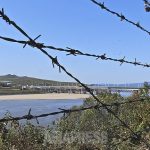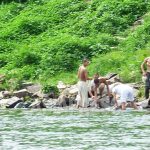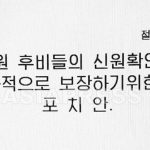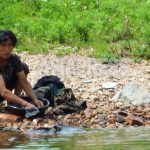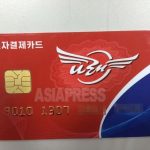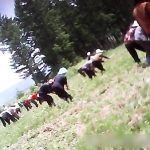2013/November/25
Written by LEE Jin-su
<< PREVIOUS (PART 4)
Pressure from China Makes North Korean Authorities Take Action in Earnest at Last
In February 2011, there was an unusual article in the North Korean state-run Korean Central News Agency(KCNA) that said, "Last year, the China's Ministry of Public Security investigated and dealt with 2,153 drug cases in the border area, leading to 2,883 arrests, and the confiscation of 3,828 kilogrammes (8,439 lbs) of drugs". It just so happened that at the time, Meng Jianzhu 孟建柱, the Minister of the Public Security of China, was visiting North Korea. It's believed the Chinese authorities, exasperated by the stimulants flowing in from North Korea, suspicions of the central government's involvement, and the sloppy crackdowns, came down strongly on the North Korean government to make the situation public.
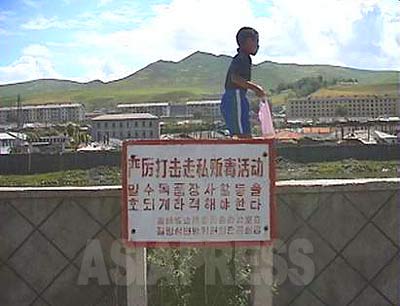
As if to respond to this strong pressure from China, since then in North Korea there has been a storm of "special crackdowns". Several of our internal reporters and collaborators have come to us with the same information. Choi Gyong-ok says in this year alone, specialist teams like the Special Strike Team(특별타격대), 1118 Team(1118상무) , and the Storm Corps(폭풍군단) have been dispatched from Pyongyang to Hyesan. These teams are all here in the name of cracking down on smuggling, human trafficking, and flow of information domestically and across the border, but drugs are always on their list of important items for investigation.
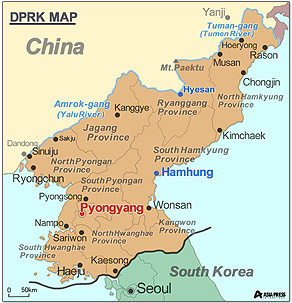 But the real situation regarding their cleanup efforts seems to be uncertain and unreliable. These special censorship teams start out tough in their investigations backed up by the authority of Pyongyang. But in most cases they gradually give in to the temptation of bribes, and end up becoming a part of the smuggling ring.
But the real situation regarding their cleanup efforts seems to be uncertain and unreliable. These special censorship teams start out tough in their investigations backed up by the authority of Pyongyang. But in most cases they gradually give in to the temptation of bribes, and end up becoming a part of the smuggling ring.
Support by Surrounding Countries is Needed
This must be a headache for the North Korean government as well. The North Korean government must respond to demands from China, and they must be aware of the future problems that North Korean society will face if they allow stimulants to spread unchecked.
Because of this, it's believed North Korean authorities have at last begun to crack down on the trafficking of stimulants in earnest, but the situation seems far from optimistic.
This is because the organizations with authority that should be on the side of the ones cracking down are themselves corrupt, and deeply involved in eoleum trafficking.Drugs and stimulants have now become deeply rooted in the daily lives of the people. Even if North Korea should head towards reform and an open door policy, this problem may become a major obstacle in reconstructing society. What's more, North Korea may continue to be the epicenter of drugs spreading to surrounding countries. The writer believes that China, South Korea and other neighbouring countries must deem the North Korean government as a partner in the eradication of drugs and stimulants from the region, consider support measures, and aggressively put them into practice.
### Rimjin-gang ------
<< BACK TO PART 1
PART 1 - PART 2 - PART 3 - PART 4 - PART5
--------------------------------------------------------------------------------------
LEE Jin-su :
Lee was born in Japan. He is a third generation Korean residing in Japan. He works as a North Korea team reporter for ASIAPRESS. He lived in South Korea for ten years working for a human rights NGO. Lee has been to the China-North Korean border fifteen times since 2004. He has interviewed over a hundred North Koreans, mainly women who were victims of human trafficking. His theme is the human rights situation surrounding North Korea's economic revitalization process.
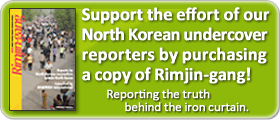
* Editor's notes on North Korean reporters
ALL REPORTS >>>
ARCHIVE(pdf) >>
